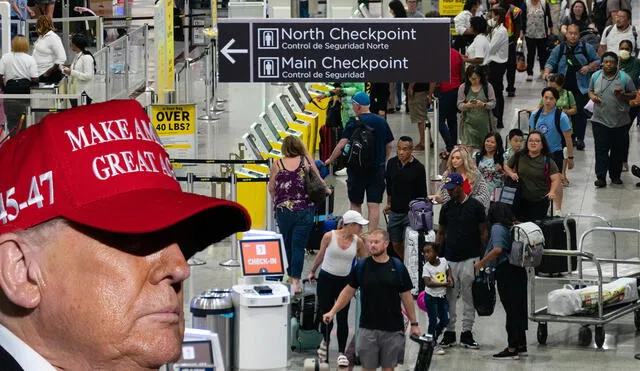Donald Trump bans people from 12 countries from entering the U.S., promises more restrictions
President Donald Trump includes Afghanistan & Libya, will be banned starting next week. Cuba & Venezuela will be partially restricted.

President Donald Trump announced that starting next week, citizens from 12 countries will be banned from traveling to the U.S. and will not be accepted starting June 9. Afghanistan, Burma, Chad, the Republic of Congo, Equatorial Guinea, Eritrea, Haiti, Iran, Libya, Somalia, Sudan, and Yemen are the nations affected by this new move.
The president also said that citizens from Burundi, Cuba, Laos, Sierra Leone, Togo, Turkmenistan, and Venezuela will face additional restrictions to enter the U.S. This is not the first travel ban implemented by Trump. During his first term, he made a similar move, and it had been foreshadowed since his administration had been working on it for some time.
Colorado Attack Strengthens the Decision
According to a video posted on Truth Social, the recent attack in Boulder, Colorado prompted the measure and its approval by the White House. The president said: "The recent terrorist attack in Boulder, Colorado, has underscored the extreme dangers posed to our country by the entry of foreign nationals who are not properly vetted."
The main suspect in the incident is Mohamed Sabry Soliman, an Egyptian national who targeted a peaceful Jewish event in support of hostages in Gaza. Apparently, Sabry used a homemade flamethrower and Molotov cocktails while shouting "Free Palestine." 15 people were injured. After the attack, Sabry’s family was also detained and is being held by Immigration and Customs Enforcement (ICE). However, a federal judge in Colorado temporarily blocked their deportation.

The Boulder attack motivates the move, according to a Trump's video posted on Truth Social. Photo: GLR Composition / AFP News
A Reason for Each Country
The White House released a document justifying the travel ban decisions for each country. Iran is considered a state sponsor of terrorism, and, according to the White House, does not cooperate in identifying security risks or repatriating nationals subject to deportation. Afghanistan, Libya, Somalia, Haiti, Sudan, and Yemen are banned due to the lack of a central authority capable of providing criminal records for migrants.
Myanmar (Burma), Chad, the Republic of Congo, Equatorial Guinea, and Eritrea have high irregular retention rates in the U.S., which reflects a disregard for U.S. immigration laws, according to the White House. The partially restricted countries also have their justifications. Cuba is also classified as a state sponsor of terrorism, and the other nations have high rates of visa overstays.
Protest in Los Angeles
On June 6, 44 people were detained by ICE in various points in Los Ángeles. That motivates protest in the city, and as a result, people faced against the police, blocking streets and highways. The police has detentions orders. On Monday, Donald Trump ordered the deployment of 2,000 National Guard agents, alongside 700 supporting Marines.
Gavin Newsom, California governor, must approve the move, but he was not consulted about it. He qualified the measure as "demential" and add on an X post: "The U.S. Marines have served honorably in multiple wars in defense of democracy,” he wrote in X. ”They should not be deployed on U.S. soil engaging their own countrymen to fulfill the insane fantasy of a dictatorial president. This is un-American".













